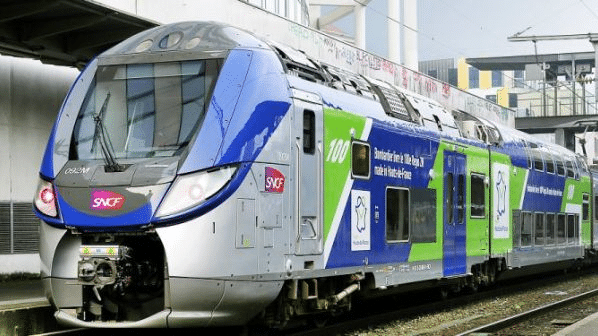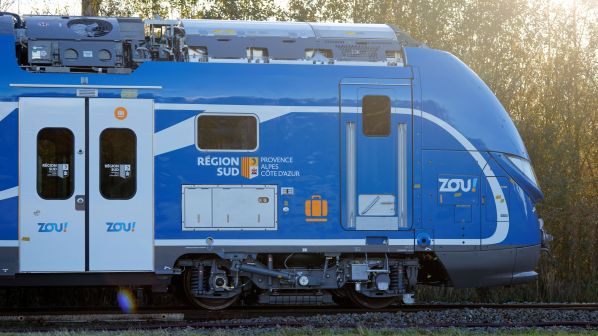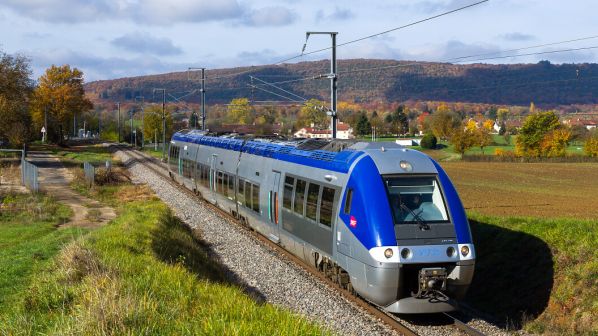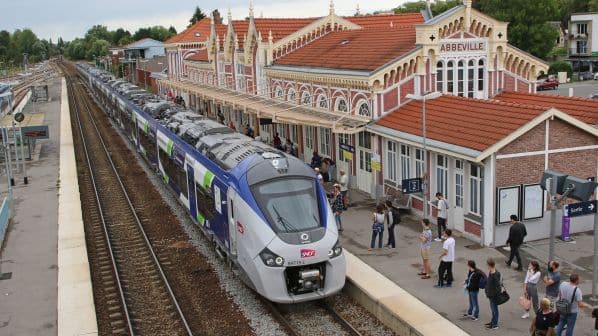THE Hauts-de-France region has begun tendering for a contract to operate passenger services on a package of lines running to Paris from towns and cities in northern France.
The contract has an estimated value of €2.5bn and is expected to run for a period of nine years from the timetable change on December 12 2027, following an 18-month mobilisation period.
TER regional services on these routes are currently operated by French National Railways (SNCF). The contract now out to tender covers:
- Calais - Amiens - Creil - Paris
- Maubeuge/Cambrai - Saint-Quentin - Compiègne - Creil - Paris
- Laon - Paris
- Beauvais - Paris, and
- Compiègne - Saint-Quentin.
The contract will cover train operations amounting to an estimated 10.9 million train-km a year, including the following new services to Roissy-Charles-de-Gaulle airport:
- Saint-Quentin - Compiègne - Creil - Roissy
- Amiens - Creil - Roissy, and
- Creil - Roissy.
These services, which are one of two options in the new contract, would use a new 6.5km double-track connection to the airport from the main line between Creil and Paris. Hauts-de-France has agreed to provide €130m of the estimated €250m cost of building the new line to infrastructure manager SNCF Network and SNCF Gares & Connexions.
The contract also includes a second option to operate regional services on the Lille - Paris line.
Hauts-de-France will make the necessary rolling stock available to the future operator, which will be responsible for fleet maintenance from levels 1 to 5, with the exception of mid-life overhaul and refurbishment and fitting greener engines to diesel trains.
The region will contribute to any new investment required, particularly for acquiring additional rolling stock which Hauts-de-France says will only take place if the current fleet size is insufficient.
The 18-month mobilisation period will allow for preparations including the transfer of staff from the incumbent operator. SNCF has informed Hauts-de-France that this would involve a total of 1181 staff, but the region has not yet verified this figure.
Expressions of interest in the new contract must be submitted by May 13. Shortlisted bidders will then be invited to submit their offers under a restricted procedure.
Provence-Alpes-Côte d’Azur
Bids were due by March 21 for a €2.74bn contract being tendered by the Provence-Alpes-Côte d'Azur (Sud) region, covering Lot 3 of its TER network.
Lot 3 comprises the following services in eastern Provence and in the Alps:
- Marseille - Aubagne - Toulon - Hyères
- Marseille -Toulon - Les Arcs-Draguignan
- Marseille - Aix-en-Provence - Pertuis
- Marseille - Gap - Briançon, and
- Briançon - Gap - Valence - Romans.
These services represented a total of 4.6 million train-km in 2023, 35% of those operated on the region’s TER network, recording a total of 356 passenger-km. Annual volume is expected to rise to 5 million train-km in 2024 and 5.5 million in 2025.
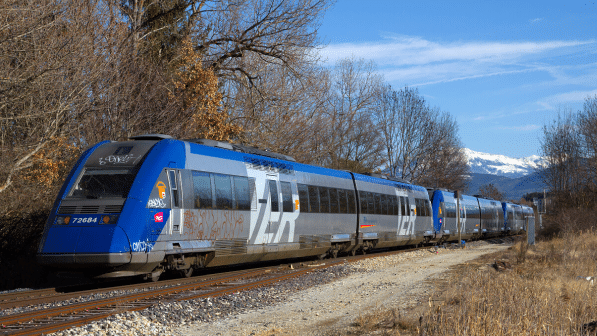
Operations under the new contract are due to start with the timetable change in December 2029 and run for a period of 10 years with a two-year extension option. A 49-month mobilisation period will run from contract award until the start of operations.
Bidders have been invited to submit proposals that would enable operations to start earlier in June 2029. This would see the mobilisation period reduced to 44 months while the operating component would still run for 10 years.
Auvergne-Rhône-Alpes
The Auvergne-Rhône-Alpes region announced earlier this year a new TER agreement with SNCF for the period from 2024 to 2033, during which time it will be tendering contracts to operate regional services on the basis of five geographical lots. The first tenders will be prepared this year.
As with the TER operating contract signed by SNCF with Grand Est in January, the new agreement makes provision for the handover between the incumbent and a new operator, including the transfer of rolling stock, train maintenance facilities and other equipment. Ownership of these will transfer to the region, in order to ensure equal treatment for both SNCF and new entrants.
The geographical lots to be tendered in Auvergne-Rhône-Alpes are:
- Auvergne
- routes radiating from Chambéry and Grenoble
- routes in Savoie and cross-border services
- routes radiating from Lyon, and
- long-distance regional services.
There will also be a "functional" lot for the management of customer services including passenger information and ticket sales. These services would be provided on behalf of the operators of all five lots.
Operation of the new lots is expected to start between 2029 and 2034. Auvergne-Rhône-Alpes has the largest TER network in France, according to the region, with 1500 trains operated a day carrying 220,000 passengers.

In preparation for putting regional operating contracts out to tender, Auvergne-Rhône-Alpes is assuming full ownership of the TER rolling stock fleet. It says that future options include the region placing its own new train orders, operators investing in the fleet and rolling stock leasing, as it looks to add 60,000 seats to current fleet capacity for 161,000 seated and standing passengers.
Meanwhile, Auvergne-Rhône-Alpes is investing €3bn in rolling stock in the period up to 2035. This comprises €1.5bn to acquire 130 new trains, €1.2bn to refurbish the existing TER fleet of 170 trains and €300m for new maintenance facilities and refurbishing existing depots.
For detailed data on European rolling stock orders, subscribe to IRJ Pro.
